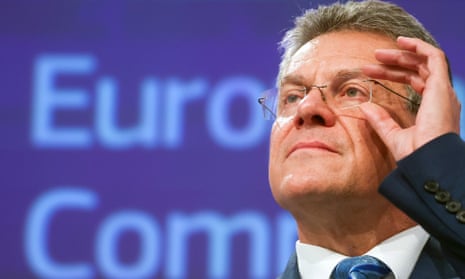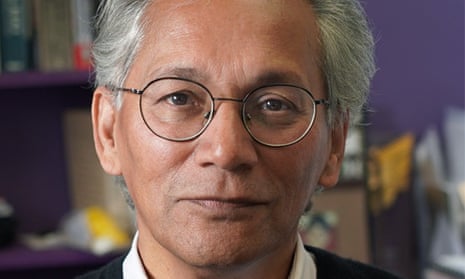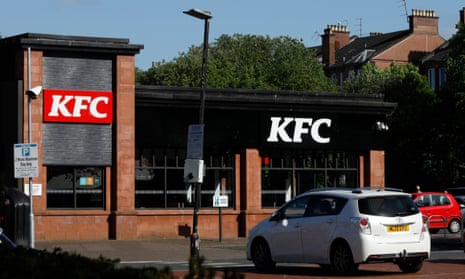Brexit car tariffs to be suspended for three years as EU protects car exports – business live | Elon Musk
EU agrees deal to change Brexit deal to ‘help its carmakers’
Lisa O’Carroll

The EU has agreed to tweak the Brexit trade and cooperation deal to help its own manufacturers, not the UK’s exports, the vice president of the European Commission Maroš Šefčovič has said.
The European Commission on Wednesday agreed a proposal that the 10% tariff on electric car imports from the UK and on exports to the UK from the EU should not apply until 1 January 2027 on any cars that are not more than 45% made in Europe.
Sefcovic said it was a “one off” deal that would not be repeated even if the car industry had not sufficiently developed its electric battery technology by the end of the three-year grace period.
The extension of the tariff-free zone will be made by a change to the annexe of the UK-EU Trade and Cooperation Agreement (TCA), which Sefcovic said was provided for in the original deal.
The proposal will go to the European Council of leaders and will need to be approved by qualified majority and then by the Partnership Council, the top level body that oversees the Brexit deal chaired by Sefcovic and Lord Cameron for the UK.
Given the controversy surrounding the Brexit deal and France’s insistence that the UK gets no special favours, it is expected that unanimous backing will be needed. This is expected on the week of the 18 December.
Sefcovic said 10 states were affected by the car manufacturing measure but the chemical industry and nascent electric battery sector would also benefit.
The EU has also announced a €3bn fund for the electric battery industry to help accelerate homegrown production of the most expensive part of any electric car.
Key events
Was the EU cars situation helped by the new foreign secretary, ex-prime minister David Cameron?
He probably came quite late in the game on this long-running issue, although the presence of a pro-EU politician may make negotiations with the UK’s largest trading partner go more smoothly.
Vice-president of the European Commission Maroš Šefčovič revealed he and Cameron are on texting terms. We know something of Cameron’s schmoozing style already, at least when it comes to texting politicians, thanks to disclosures after the collapse of Greensill, a lender to businesses.
When lobbying for the scandal-hit financial services company, Cameron used WhatsApp messages as his key tool to catch the ear of potentially useful people. Šefčovič can expect message to sign off with “Dc” or a simple “👍” – or with attempted joviality such as this pandemic-era diplomatic gem:
see you with Rishi’s for an elbow bump or foot tap. Love Dc.
You can read more about Cameron’s WhatsApp lobbying here:
The car industry has been tearing its hair out over the past year over whether or not the Brexit tariff deadline would be extended. If confirmed, today’s U-turn has prevented months of chaos in the industry.
But why did it take so long, considering the Brexit deal was agreed back in the mists of time under one Boris Johnson (who today has other things on his mind – you can follow that live here)?
The answer, at least in part, is that the EU did not want to hand a political concession to the UK, which after all decided to leave the single market that guarantees no tariffs will be imposed.
The deal could still be vetoed by the EU member states. Nevertheless, many in the car industry had thought it inevitable that the EU would budge eventually, simply because the vast majority of the European car industry had pleaded for a compromise. They were helped by the argument that the imposition of tariffs on electric cars would benefit China.
You can read a more detailed explainer of the situation here, from yours truly:

Lisa O’Carroll
David Cameron’s appointment as foreign secretary has further thawed EU and UK relationship with the vice-president of the European Commission Maroš Šefčovič revealing they are already on texting terms.
Šefčovič said the atmosphere at the top level Brexit bilateral body was now “very good indeed”. The body was originally headed by Šefčovič and Lord Frost, who was followed by Cameron’s predecessor, James Cleverly.

Šefčovič was speaking to reporters he unveiled a proposal for the EU to tweak the Brexit Trade and Cooperation Agreement with a “one-off” three-year suspension of tariffs due to be levied on exports of electric cars from the UK to the EU and vice versa.
He said this was done because it was in the EU’s interest.
But he smiled broadly when asked about his relationship with Cameron. He said he had previously known him when working on green issues at a time when he was prime ministers.
But at the meeting last week – Cameron’s first in the EU since he lost his premiership over Brexit – they agreed to stay in touch. Šefčovič said:
We exchanged our phone numbers and we are texting each other.

Lisa O’Carroll
The European Automobile Manufacturers’ Associations (ACEA) has welcomed the European Commission’s proposal to seek a three-year extension to the current rules of origin for electric car batteries.
Jonathan O’Riordan, ACEA’s international trade director said:
It’s really good news for us. The dominant sentiment is one of relief. There have been positive signs in the last few months but it was clear some member states still need to be convinced.
Now we need the member states to agree to the proposals but the signs are positive.
EU agrees deal to change Brexit deal to ‘help its carmakers’

Lisa O’Carroll

The EU has agreed to tweak the Brexit trade and cooperation deal to help its own manufacturers, not the UK’s exports, the vice president of the European Commission Maroš Šefčovič has said.
The European Commission on Wednesday agreed a proposal that the 10% tariff on electric car imports from the UK and on exports to the UK from the EU should not apply until 1 January 2027 on any cars that are not more than 45% made in Europe.
Sefcovic said it was a “one off” deal that would not be repeated even if the car industry had not sufficiently developed its electric battery technology by the end of the three-year grace period.
The extension of the tariff-free zone will be made by a change to the annexe of the UK-EU Trade and Cooperation Agreement (TCA), which Sefcovic said was provided for in the original deal.
The proposal will go to the European Council of leaders and will need to be approved by qualified majority and then by the Partnership Council, the top level body that oversees the Brexit deal chaired by Sefcovic and Lord Cameron for the UK.
Given the controversy surrounding the Brexit deal and France’s insistence that the UK gets no special favours, it is expected that unanimous backing will be needed. This is expected on the week of the 18 December.
Sefcovic said 10 states were affected by the car manufacturing measure but the chemical industry and nascent electric battery sector would also benefit.
The EU has also announced a €3bn fund for the electric battery industry to help accelerate homegrown production of the most expensive part of any electric car.
TV executive Samir Shah to be appointed BBC chair

The veteran TV executive Samir Shah is to be appointed as the next chair of the BBC, the Guardian understands.
Shah, 71, who has previously served as non-executive director at the broadcaster, is expected to have his appointment announced on Wednesday.
The BBC referred inquiries to the Department for Culture, Media and Sport, which has been approached for comment.
Shah would succeed Richard Sharp, who resigned as BBC chair in April after he breached rules on public appointments in connection to a secret £800,000 loan made to Boris Johnson.
You can read the full report here:

Sarah Butler

KFC is significantly expanding its portfolio of company-run restaurants in the UK with acquisition of more than 200 outlets currently run under franchise by petrol forecourts group EG.
The deal, is part of EG’s efforts to cut debt which also included the sale of its UK forecourts business and the Leon takeaway chain to sister company Asda.
KFC currently runs just 50 of its 1,040 UK restaurants directly and so buying out its largest franchise EG, taking on 7,800 more staff, will mark a significant change. KFC said underlying sales were up 5% in the UK and Ireland and the UK was now “close to being a £2bn business”.
Meg Farren, managing director of KFC UK and Ireland, said:
With the market for high-quality, great-tasting chicken growing all the time, we see a big opportunity to capitalise on our leadership position and to unlock new value for all our stakeholders in the UK and Ireland.

Kalyeena Makortoff
The Bank of England is launching a fresh review into artificial intelligence and machine learning amid fears the rapidly developing sector could pose risks to the UK’s financial stability.
AI and machine learning have been used across the City for at least a decade, for example, to help detect fraud and money laundering. However, a recent increase in technological advances and available data, as well as falling costs of computing power, had sparked “considerable interest” and more widespread use across the sector, regulators on the Bank’s financial policy committee (FPC) said.
While most companies suggested the way they were using the technology was “relatively low risk”, the FPC warned that wider adoption “could pose system-wide financial stability risks”. That could mean greater “herding behaviour”, where there is a concentration of firms making similar financial decisions that skew markets, and an increase in cyber risks.
New AI and data providers could also end up becoming important participants in financial markets and require closer oversight. The Bank, its regulatory arm the Prudential Regulation Authority, as well as the City watchdog the Financial Conduct Authority will launch a consultation paper on these “critical third parties” later this month.
You can read the full report – written deep within the bowels of the Bank’s headquarters at Threadneedle Street – here:
Asked about migration policy, Andrew Bailey says the Bank is not responsible for migration.
It’s not for us to judge those policies, Bailey says. (Many economists and businesses think that the government’s decision this week to raise the salary threshold for immigrants will dent the UK’s growth by making it harder for businesses to hire.)
And that is the end of the press conference.
Sam Woods, another deputy governor, said the UK handled the collapse of Silicon Valley Bank “pretty well”, highlighting how fast a buyer was found.
There were three options by the Sunday evening after the US bank collapsed.
There was a lot of concern about the lack of access of companies to their deposits when the bank was transferred to HSBC. He says work is advanced on changes that would allow companies to continue to access their money during a similar situation.
Sarah Breeden, the Bank’s deputy governor, says there has been a sizeable decline in commercial real estate prices, but there have not been forced sales (which would imply financial stability problems).
Less of the debt to property companies is provided by banks, so it poses less of a risk to UK financial stability, she says.
Andrew Bailey says “thank goodness” that we are seeing fewer repossessions of homes, partly because of changes to laws, but also because the banking sector is better able to help struggling borrowers.
Asked about renters, Bailey says the Bank has to be alert to the position of renters particularly because of the decline in the proportion of homeowners in Britain.
Renters are more likely to be poorer, Bailey says. The aggregate is important for financial stability, but the distribution of renters is more broadly important for public policy.
Bailey says he is not an expert in AI – “palpably not”.
But he says productivity increases would be a welcome thing:
AI has tremendous potential as well… we can’t just describe it as a bag of risks.
Andrew Bailey: ‘We have to embrace AI with our eyes open’

We’re all learning about AI at rapid pace, Bailey says, in response to a question from the Guardian’s banking correspondent Kalyeena Makortoff.
He says:
We obviously have to go into AI with out eyes open… It is something that we have to embrace
Bailey says there could be profound implications for economic growth and productivity – and he sounds broadly positive about that. But:
We have to embrace it with our eyes open… If you’re a firm using AI, you hve to understand the tool you’re using.
It’s not out of control in the sense of 2001: A Space Odyssey. It’s actually that the thing is so complicated in many of its forms that understandingexactly what the black box delivers is very hard.
Bailey highlights “hallucinations” – unexpected creations from generative AI. “You can’t have that sort of thing happening” in financial firms, Bailey says.
Asked about government policies aiming to boost higher-return investing by pension funds, Bailey says it is a “very good idea” to try to encourage investment in the real economy.
The more leveraged elements of the system are a “very distinct thing”, and he doesn’t think pension funds are being encouraged to invest in leveraged lending.
He pushes back against the description of intervention during the crisis under Liz Truss as “quantitative easing”.
He says the Bank needs to be able to act on financial stability even if there are monetary policy implications.

